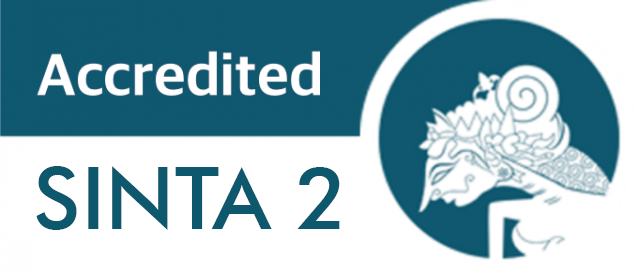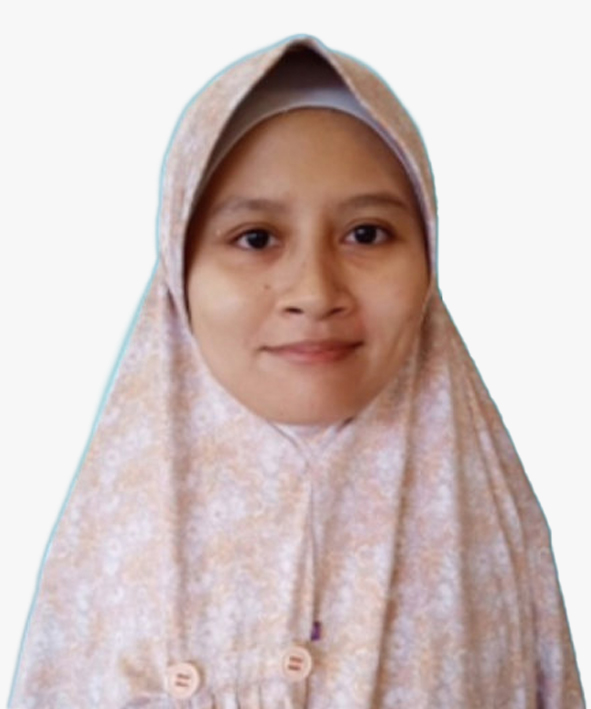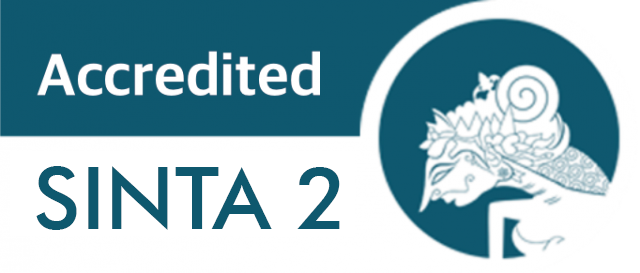Negative Symptoms Management in Schizophrenia
Downloads
Clinicians often overlook the presence of negative symptoms in treating schizophrenia. The burden borne by patients, families, and society is quite heavy. These symptoms not only have high costs, but also affect the functional prognosis in independence and socializing. There is a need for adequate therapy of negative symptoms of schizophrenia which can improve the patient's quality of life. Negative symptoms are characterized by blunt affect, alogia, avolition, anhedonia, and asociality. Knowing the difference between the primary and secondary types of negative symptoms of schizophrenia can bring big impact on the therapy. The primary type of negative symptoms is an integral part of schizophrenia, while the secondary one is caused by external conditions of schizophrenia, such as depression. Management of negative symptoms of schizophrenia includes psychopharmaceuticals and non-psychopharmaceuticals. Atypical antipsychotics remain the drug of choice due to their affinity not only to D2 receptor, but also to serotonin, glutamate, histamine, α adrenergic, and muscarinic receptors. In addition, the higher dissociation rate of D2 receptors of atypical antipsychotics allow for minimal motor side effect. Cariprazine has been approved by The Food and Drug Associaton and The European Medicines Agency to treat primary and persistent negative symptoms due to its minimal side effect. Non-pharmacological therapies such as Cognitive Behavioral Therapy (CBT) and Motivation and Engagement Training (MOVE) can optimize the treatment efficacy. These therapies will enhance the cognitive improvement, adaptation, and social skill development of the patients.
W. T. Carpenter and R. W. Buchanan, "Negative Symptom Therapeutics,” Schizophr. Bull., vol. 43, no. 4, pp. 681–682, 2017, doi: 10.1093/schbul/sbx054.
M. Szkultecka-d et al., "Epidemiology and Treatment Guidelines of Negative Symptoms in Schizophrenia in Central and Eastern Europe : A Literature Review Epidemiology and Treatment Guidelines of Negative Symptoms in Schizo- phrenia in Central and Eastern Europe : A Literature Revi,” no. 175007, 2015, doi: 10.2174/1745017901511010158.
S. Sarkar, "Conceptualization and treatment of negative symptoms in schizophrenia,” World J. Psychiatry, vol. 5, no. 4, p. 352, 2015, doi: 10.5498/wjp.v5.i4.352.
N. Barabassy, A., Szatmari, B., Laszlovszky, I.,
"Negative Symptoms of Schizophrenia : Constructs, Burden and Management,” IntechOpen, 2018.
S. Galderisi, A. Mucci, R. W. Buchanan, and C. Arango, "Review Negative symptoms of schizophrenia : new developments and unanswered research questions,” The Lancet Psychiatry, vol. 0366, no. 18, pp. 1–14, 2018, doi: 10.1016/S2215- 0366(18)30050-6.
S. & Saddock, Kaplan dan Sadock Buku Ajar Psikiatri Klinis Edisi 2, 2nd ed. Jakarta: EGC, 2017.
S. Stahl, Stahl's Essential Psychopharmacology Neuroscientific Basis and Practical Applications Fourth Edition, 4th ed. Cambridge: Cambridge Medicine, 2013.
S. R. T. Veerman, "Treatment for Negative Symptoms in Schizophrenia : A Comprehensive Review,” Drugs, 2017, doi: 10.1007/s40265-017- 0789-y.
G. Foussias et al., "Treating Negative Symptoms in Schizophrenia : an Update,” Curr. Treat. Options Psychiatry, pp. 133–150, 2016, doi: 10.1007/s40501- 016-0075-8.
W. T. Carpenter, J. J. Blanchard, and B. Kirkpatrick, "New Standards for Negative Symptom Assessment,” Schizophr. Bull., vol. 42, no. 1, pp. 1–3, 2016, doi: 10.1093/schbul/sbv160.
O. Elis, J. M. Caponigro, and A. M. Kring, "Psychosocial treatments for negative symptoms in schizophrenia: Current practices and future directions,” Clin. Psychol. Rev., vol. 33, no. 8, pp. 914–928, 2013, doi: 10.1016/j.cpr.2013.07.001.
G. Cerveri, C. Gesi, and C. Mencacci, "Pharmacological treatment of negative symptoms in schizophrenia: Update and proposal of a clinical algorithm,” Neuropsychiatr. Dis. Treat., vol. 15, pp. 1525–1535, 2019, doi: 10.2147/NDT.S201726.
L. Alphs, R. Morlock, C. Coon, A. van Willigenburg, and J. Panagides, "The 4-Item negative symptom assessment (NSA-4) instrument: A simple tool for evaluating negative symptoms in schizophrenia following brief training,” Psychiatry (Edgemont), vol. 7, no. 7, pp. 26–32, 2010.
J. A. Gray and B. L. Roth, "The pipeline and future of drug development in schizophrenia,” Mol. Psychiatry, vol. 12, no. 10, pp. 904–922, 2007, doi: 10.1038/sj.mp.4002062.
I. Kusumi, S. Boku, and Y. Takahashi, "Psychopharmacology of atypical antipsychotic drugs: From the receptor binding profile to neuroprotection and neurogenesis,” Psychiatry Clin. Neurosci., vol. 69, no. 5, pp. 243–258, 2015, doi: 10.1111/pcn.12242.
W. Earley et al., "Efficacy of cariprazine on negative symptoms in patients with acute schizophrenia: A post hoc analysis of pooled data,” Schizophr. Res., vol. 204, no. xxxx, pp. 282–288, 2019, doi: 10.1016/j.schres.2018.08.020.
M. P. C. Curran, "Amisulpride: A Review of Its Use in The Management of Schizophrenia.,” Springer, 2001.
M. Candida et al., "Cognitive-behavioral therapy for schizophrenia: an overview on efficacy, recent trends and neurobiological findings,” Med. Express, vol. 3, no. 5, pp. 1–10, 2016, doi: 10.5935/medicalexpress.2016.05.01.
T. Morales Vigil, A. F. Orellana, R. R. García, and
M. D. Correa, "La terapia cognitivo conductual y los síntomas negativos en la esquizofrenia,” Salud Ment., vol. 38, no. 5, pp. 371–377, 2015, doi: 10.17711/SM.0185-3325.2015.050.
M. . Velligan, D, I., Roberts, D., Mintz, J., Maples, N., Li, X., Madellin, E.,&Brown, "A Randomized Pilot Study of MOtiVation and Enhancement (MOVE) Training for Negative Symptoms in Schizophrenia.,” Schizophr. Res., 2015.
P. A. Ho, D. N. Dahle, and D. L. Noordsy, "Why Do People With Schizophrenia Exercise? A Mixed Methods Analysis Among Community Dwelling Regular Exercisers,” Front. Psychiatry, vol. 9, no. November, pp. 1–8, 2018, doi: 10.3389/fpsyt.2018.00596.
J. Firth, J. Cotter, R. Elliott, P. French, and A. R. Yung, "A systematic review and meta-Analysis of exercise interventions in schizophrenia patients,” Psychol. Med., vol. 45, no. 7, pp. 1343–1361, 2015, doi: 10.1017/S0033291714003110.
Copyright (c) 2021 Maria Francisca Intan Primasiwi Lolobua, Khairina Khairina, Ida Aju Kusuma Wardani, Angelina M. Mirna Santoso

This work is licensed under a Creative Commons Attribution-ShareAlike 4.0 International License.
1. Copyright of this journal is possession of the Author, by the knowledge of the Editorial Board and Journal Manager, while the moral right of the publication belongs to the author.
2. The journal allows the author(s) to retain publishing rights without restrictions.
3. The articles are published under a Creative Commons Attribution Share-Alike (CC BY-SA) license. Many research funding bodies prefer the CC BY-SA license because it allows for maximum dissemination and re-use of open access materials. Users are free to share (copy, distribute, and transmit) and remix (adapt) the contribution under this license, including for commercial purposes, as long as they attribute the contribution in the manner specified by the author or licensor.




























